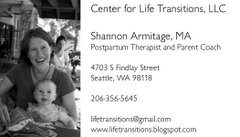What I like about the information campaign to reduce one's carbon footprint is how they give practical examples of life changes one can make to help the planet. I'd like to share some practical examples that others have taught me on how to reduce one's "anxiety footprint", if you will. Not all of these behavior changes will work for everyone, but you might find one in there that helps reduce the anxiety we carry.
1. Reduce Your Caffeine Consumption. Sounds easy enough, I know, but, man, is it hard to live out. Personally, I lean toward the weaning method. Drink 3 cups of coffee in the morning? Try 2. Grind your own half-caff blend at home, or order it from your coffee shop. Make every third soda pop of the caffeine-free variety. Switching from coffee to black tea will also deliver a smaller jolt. I'm sure there are countless other ways to decrease your caffeine intake.
2. Stay Busy. Again, this one sounds simple but can be harder to manifest. One tried and true way is to join a group. I've known people who have enjoyed great breaks from anxiety by joining running groups or other organized sports. Others have signed up for classes or tried new hobbies in an effort to quiet anxiety. While others I know have simply written activities for themselves in their calendars, like taking a walk, going to a museum, play, or movie, or writing letters to far-off friends or relatives as a way to provide structure to their days. Idle time too often nurtures unwelcome anxiety.
3. Go to Sleep. Anxiety loves to pester a tired mind. We are simply more susceptible to its influence when we have fewer mental reserves. And at no time are our reserves at their lowest than when we are tired. I know the pharmaceutical companies would have you think that sleeping can be solved with a little pill, but I have yet to find a better result than by simply improving one's sleep hygiene. The most basic way to improve sleep hygiene is by maintaining a good sleep schedule. Go to bed at the same time every night, and wake around the same time each morning. Aim for 7-8 hours of sleep per night. And use your bed for sleeping--not email, not snacking, not talking on the phone. Sleeping (okay, and maybe that other thing, too), but first and foremost: Your Bed is for Sleeping!
Good luck with your own campaign to reduce your "anxiety footprint"!
Thursday, May 8, 2008
Subscribe to:
Post Comments (Atom)

No comments:
Post a Comment